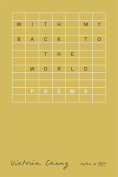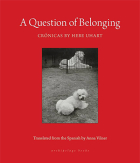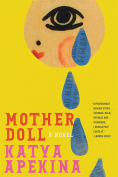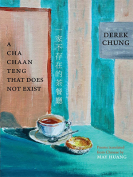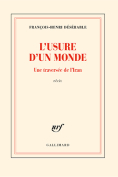The Words That Remain by Stênio Gardel
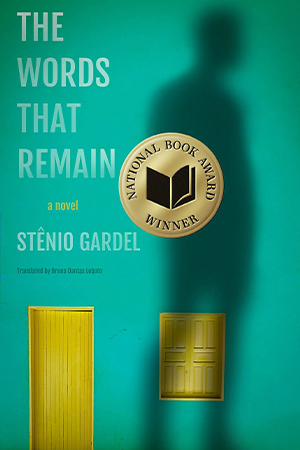 New York. New Vessel. 2023. 147 pages.
New York. New Vessel. 2023. 147 pages.
Stênio Gardel’s widely acclaimed debut novel, in Bruna Dantas Lobato’s brilliant translation, won the 2023 National Book Award for Translated Literature. It tells the story of Raimundo, a gay man who grows up in a small town in the arid and impoverished interior of Brazil’s Northeast, a region whose culture and social relations are deeply shaped by traditional patriarchal values and machismo.
At the beginning of the narrative, Raimundo is seventy-one years old and signing his full name—Raimundo Gaudêncio de Freitas—for the first time, after attending a literacy class for adults. Thus he fulfills a lifelong dream never realized because of his family’s economic situation. His father, Damião, owned a small parcel of land where the modest family home sat but always signed with a thumbprint and believed “writing was for people who [didn’t] need to put food on the table.” Learning to read as an old man, Raimundo also fulfills the promise that his friend Cícero had made to teach him how to read and write. Having known each other since childhood, they later become lovers, and for Raimundo their relationship is the beginning of a series of discoveries—about love, sexuality, and his true self as well as rejection, violence, and despair. The two young men begin to meet clandestinely, and their passionate encounters are beautifully rendered through imagery evocative of the rural setting where they live:
On bare skin, the saliva from their kisses and the sweat from their embrace irrigated the deep roots inside them, which clung to their guts and everything else inside them. Even their souls. And the roots turned their veins into sap and grew through their pores like branches climbing toward the sun. When they touched, they became entangled and turned into a single stalk, with a flower that opened on their chest. Yellow poppy in a blood-red sepal.
Gardel thus portrays erotic love in its most essential meaning, as two people becoming one; as a perfect form of communication but also as transgression; and as death and rebirth: “They arched their backs, their knees up toward their torso, and they plunged into the world’s ancient water, into man’s embryonic fluid.”
Raimundo and Cícero’s families and community, however, see only abomination and contamination. This point is effectively made in the Portuguese-language novel through the repeated use of the word imundo (filthy), which echoes the protagonist’s name and conveys his (self-)rejection. The young men’s fathers resort to physical violence in order to “cure” their sons. Raimundo is forced to leave his family home and takes along a letter Cícero had written for him, and which he will always carry in his pocket, unable to read it until decades later.
Cícero’s letter not only stands for the absent lover but also for the societal silence imposed on the characters’ homosexuality and homoerotic relationship, a silence that is also very characteristic of Brazil’s repressive northeastern culture, where people were normally discouraged from expressing their feelings or opinions, particularly when these challenged the status quo. In this respect, those who have suffered most under such strict social norms have been women, homosexuals, and transgender people, such as Raimundo’s friend Suzzanny. Nevertheless, the letter propels Raimundo forward in his life journey, a troubled process of awakening along which he encounters ignorance, hatred, and fear but also friendship, empathy, and, eventually, self-acceptance.
The Words That Remain is a poignant, sensitive narrative, the author’s style both delicate and brutal. As often happens, the translation does not offer the reader access to the many expressive northeastern regionalisms of the original text. It is not uncommon for English-language translators of contemporary fiction to maintain certain words or phrases from the original language in the translated text. Dantas Lobato, however, chose not to do so. Yet she beautifully re-creates Gardel’s novel in her rich, heartfelt translation, while her semantic choices help illuminate the universality of homophobia and its profound negative impacts.
Cristina Pinto-Bailey
Lexington, Virginia






![The cover to [...] by Fady Joudah](/sites/worldliteraturetoday.org/files/styles/backissue_small/public/Joudah.jpg?itok=HZO1_68A)
